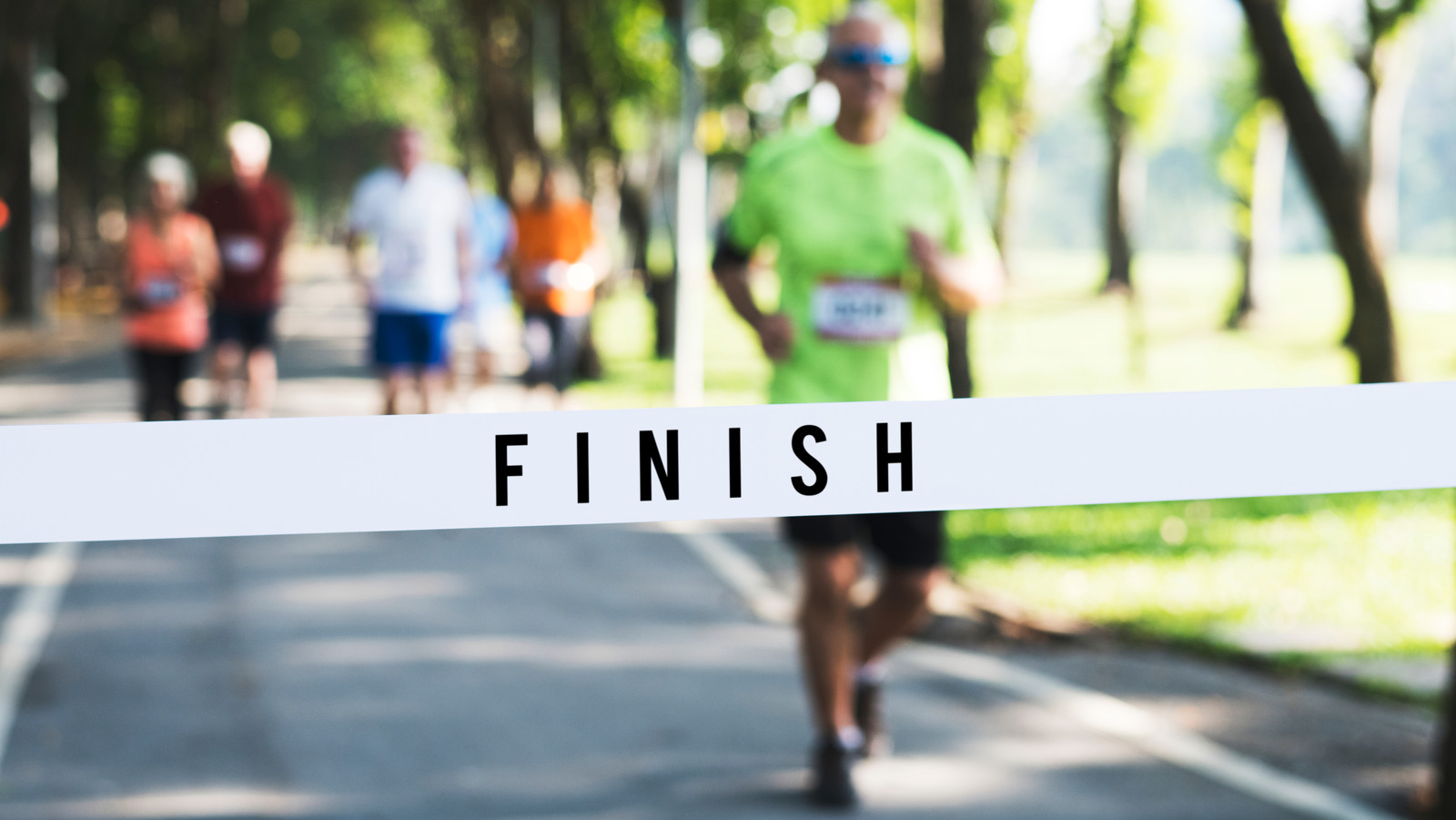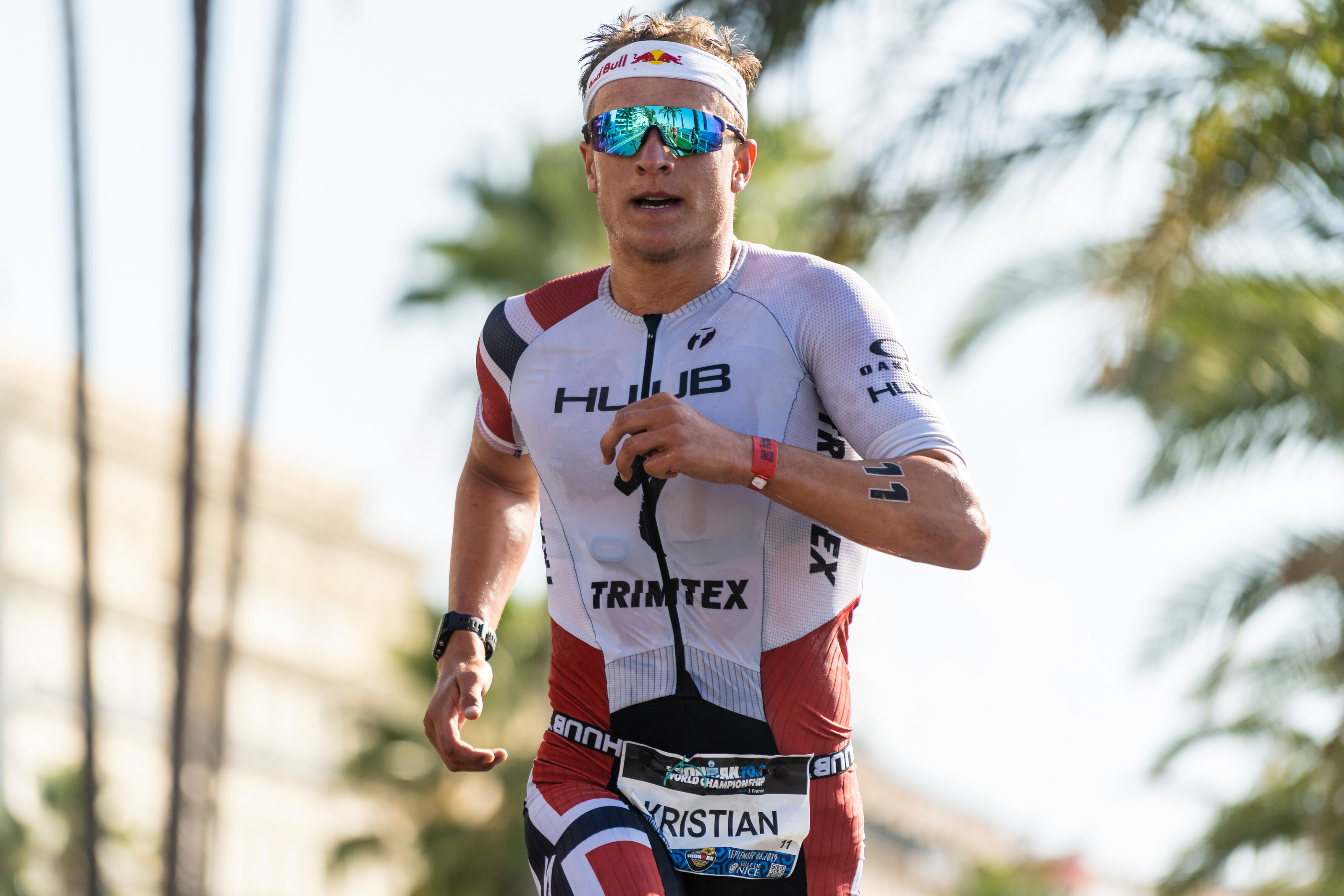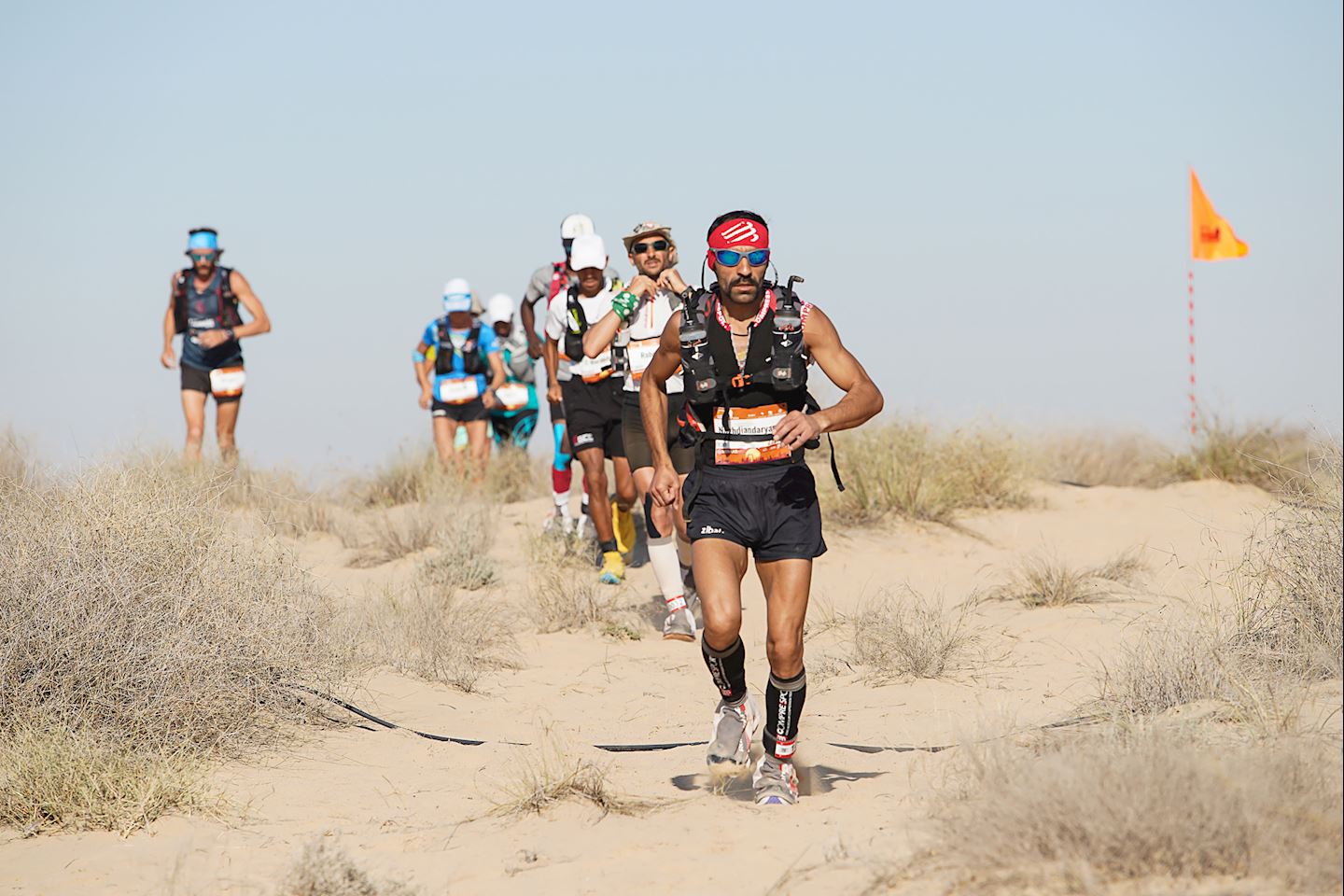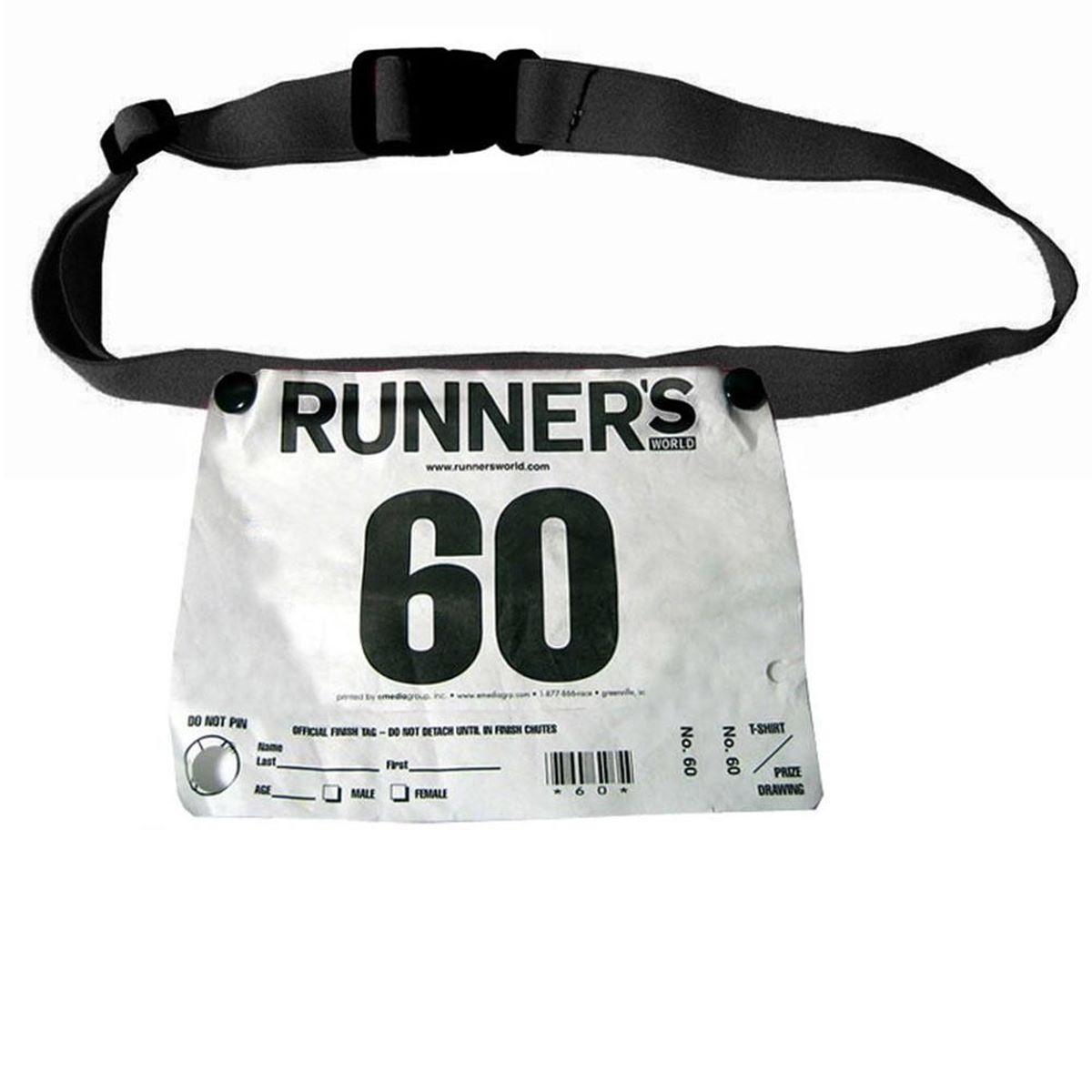Home>Misc>Featured>What Happens To Your Body In The 48 Hours After A Marathon


Featured
What Happens To Your Body In The 48 Hours After A Marathon
Modified: January 22, 2024
Discover the incredible effects a marathon has on your body in the critical 48-hour window. Dive into this featured article now!
Introduction:
Running a marathon is an incredible accomplishment that requires months of training, dedication, and perseverance. The physical and mental demands of completing 26.2 miles are not to be underestimated. But have you ever wondered what happens to your body in the 48 hours after crossing that finish line? The post-marathon recovery process is just as vital as the training itself.
During the race, your body undergoes various physiological changes to adapt to the intense physical exertion. It’s a true test of endurance, strength, and willpower. However, the journey doesn’t end when you receive your medal. The hours and days following a marathon are crucial for allowing your body to heal and recover.
In this article, we will delve into the intricate process your body goes through in the 48 hours after a marathon. From preparing for the marathon to the immediate aftermath and the subsequent recovery period, we will explore the ups and downs your body experiences. So, if you’re curious about the remarkable changes that occur within you post-marathon, read on!
Preparing for the Marathon:
Preparing for a marathon is a journey that requires dedication and careful planning. Months before the big day, runners engage in a rigorous training program designed to gradually increase their mileage and build their endurance. This training period allows the body to adapt to the demands of long-distance running and prepares it for the challenges ahead.
During the training phase, runners focus on various aspects of their preparation. They incorporate long runs into their weekly routines, gradually increasing the distance each week. These long runs help runners gauge their pace, test their endurance, and simulate the physical demands of the marathon.
In addition to long runs, runners also incorporate speed workouts and hill training to improve their overall performance. These workouts help to increase cardiovascular fitness, develop leg strength, and enhance running efficiency.
Proper nutrition and hydration are also crucial aspects of marathon preparation. Runners carefully monitor their diet, ensuring they consume a balanced mix of carbohydrates, proteins, and healthy fats. They pay attention to their hydration levels, maintaining adequate fluid intake before, during, and after their runs.
Another important aspect of marathon preparation is ample rest and recovery. Rest days are strategically placed in the training schedule to allow the body to repair and rebuild after intense workouts. Sleep is prioritized to ensure optimal physical and mental recovery.
Mental preparation is equally important as physical conditioning. Runners use various techniques, such as visualization and positive affirmations, to build mental resilience and maintain focus during the marathon.
In summary, preparing for a marathon is a comprehensive process that involves structured training, attention to nutrition and hydration, rest and recovery, and mental conditioning. The months leading up to the marathon are dedicated to building endurance, strength, and mental resilience. By adequately preparing the body and mind, runners set themselves up for success on race day.
The Day of the Marathon:
The day of the marathon is a culmination of weeks or even months of training and anticipation. It’s an exhilarating and nerve-wracking experience for runners as they gather at the starting line, surrounded by fellow participants and a wave of excitement in the air.
To ensure a successful race day, runners follow a well-thought-out plan that includes proper nutrition, hydration, and mental preparation. They carefully select their pre-race meal, opting for easily digestible carbohydrates to fuel their bodies. Hydration plays a vital role as well, with runners drinking adequate amounts of water or sports drinks to stay hydrated throughout the race.
As the marathon begins, the adrenaline kicks in, and runners set off at their planned pace. The first few miles are a flurry of emotions and excitement as they settle into their rhythm. The atmosphere is electric, with crowds cheering and encouraging runners along the route.
Hydration stations are strategically placed along the course, providing runners with water and energy gels to replenish electrolytes and maintain their energy levels. Runners are mindful of their hydration and refuel at these stations to ensure they stay hydrated and avoid hitting a wall.
Mental strength becomes crucial as the miles start to add up. Runners rely on their training and mental strategies to stay focused and motivated. Positive self-talk, visualization, and pacing strategies are just some of the techniques employed to keep the mind strong and overcome fatigue.
Crossing the finish line is a moment of sheer accomplishment and joy. The sense of achievement is overwhelming as runners collect their well-deserved medals and celebrate with friends and family. But the journey doesn’t end there; what happens in the hours and days following the marathon is just as important as the race itself.
Immediately After the Marathon:
The moment you cross the finish line of a marathon is exhilarating but also physically demanding. Immediately after completing the race, your body undergoes a range of changes as it begins the process of recovery. Here’s what happens in those immediate moments after the marathon.
First and foremost, your body experiences a surge of endorphins, often referred to as the “runner’s high.” These feel-good hormones flood your system, providing a sense of euphoria and relief from the physical and mental exertion of the race.
Despite the temporary boost of endorphins, your body may also be in a state of shock. Muscles and joints may ache, and you may feel a sense of fatigue overwhelming you. This is completely normal and a natural response to the intense physical effort you just exerted.
Post-race, it’s crucial to rehydrate your body. Replace fluids lost during the marathon by drinking water or sports drinks that contain electrolytes. It’s also a good idea to have a small snack that combines carbohydrates and protein to help your muscles start the recovery process.
Stretching and light movements can help prevent post-race stiffness and keep the blood flowing. Gentle stretches and walking can aid in flushing out lactic acid and promote circulation to your muscles. However, listen to your body and avoid any vigorous stretching or activities that may cause further strain or injury.
Within the first hour or two after crossing the finish line, many runners opt for ice baths or cold water therapy to reduce inflammation and aid in muscle recovery. Submerging your lower body in cold water can help constrict blood vessels and prevent swelling. However, it’s important to consult with a healthcare professional to determine the appropriateness of this recovery method for your specific circumstances.
Rest and sleep are crucial in the immediate aftermath of a marathon. Your body needs time to repair and regenerate damaged tissues. Adequate sleep allows for the release of growth hormones, which are essential for muscle repair and recovery.
In the hours immediately after the marathon, it’s also important to listen to your body’s signals. Pay attention to any signs of injury or excessive pain, as these may require medical attention. Remember, proper recovery is a marathon in itself, and taking the time to rest and care for your body will ensure a smoother and speedier recovery process.
The First 24 Hours:
The first 24 hours after completing a marathon are crucial for initiating the recovery process. During this time, your body continues to heal and repair from the intense physical demands of the race. Here’s what happens in the first day after crossing the finish line.
Within the first few hours, you may experience muscle soreness and stiffness, commonly known as delayed onset muscle soreness (DOMS). This discomfort is a normal response to the micro-tears and inflammation that occur during the marathon. Applying ice or using compression garments can help reduce swelling and alleviate soreness.
Replenishing your body’s glycogen stores is essential post-marathon. Consuming a balanced meal that includes carbohydrates, protein, and healthy fats within the first few hours can help kickstart the recovery process. Nutrient-dense foods provide the necessary building blocks for repairing damaged tissues and replenishing energy levels.
Hydration remains a key component of recovery during the first 24 hours. Continuously drinking fluids, including water, sports drinks, or electrolyte-rich beverages, helps replace lost fluids and maintain optimal hydration levels.
Rest and gentle movement are vital during this initial recovery phase. While it may be tempting to immediately resume regular activities, allowing your body time to rest is crucial for a successful recovery. Light stretching, walking, or gentle yoga can aid in improving blood circulation and preventing stiffness.
Getting enough sleep is equally important for recovery. Your body repairs and rebuilds damaged tissues during sleep. Aim for at least 7-9 hours of quality sleep to support the healing process.
During this time, it’s also important to practice self-care. Taking a warm bath with Epsom salts, using foam rollers or massage tools to alleviate muscle tension, and engaging in relaxation techniques such as deep breathing or meditation can help promote physical and mental relaxation.
If you experience any concerning symptoms during the first 24 hours, such as extreme pain, swelling, or decreased range of motion, it’s important to seek medical advice. These symptoms could indicate a more serious injury or complication from the marathon.
Remember, the first day after a marathon is a critical period for recovery. By nourishing your body, allowing for rest, and engaging in gentle movement, you set the foundation for a successful healing process and prepare for the days ahead.
24-48 Hours After the Marathon:
The 24-48 hours following a marathon mark a crucial phase in your body’s recovery process. While the initial soreness and fatigue may still persist, your body is working diligently to repair and rejuvenate. Here’s what happens during this period and how you can support your body’s recovery.
Muscle soreness may peak within the first 24-48 hours after the marathon. This is a result of inflammation and the body’s natural healing response. Rest is key during this time to allow the muscles to recover and repair. Engaging in light, low-impact activities such as walking or gentle yoga can help promote blood flow and alleviate stiffness.
Nutrition continues to play a crucial role in recovery during this period. Focus on consuming nutrient-dense meals that include a balance of carbohydrates, protein, and healthy fats. This combination provides the essential building blocks for muscle repair and replenishes depleted energy stores.
Ensuring proper hydration is equally important in the 24-48 hour post-marathon window. While water is vital, including electrolyte-rich fluids or sports drinks can also help replenish lost electrolytes and aid in rehydration. This is especially important if you experienced excessive sweating during the race.
During this time, cross-training exercises or low-impact activities can help aid recovery without taxing the body excessively. Light cycling, swimming, or using an elliptical machine can provide gentle movement and promote blood circulation without putting strain on the joints and muscles.
Applying techniques such as gentle foam rolling or self-massage can help alleviate muscle soreness and improve mobility. However, be cautious and avoid excessive pressure or triggering additional pain. Consult with a healthcare professional for specific guidance based on your condition and needs.
Sleep remains essential during this recovery period. Aim for adequate restorative sleep, allowing your body to continue repairing and regenerating tissues. This is when the muscles rebuild and grow stronger, enhancing your overall recovery and performance.
Listening to your body is crucial during the 24-48 hour phase after a marathon. While it’s important to engage in light activity and promote recovery, it’s equally important to recognize when your body needs additional rest. Pushing through excessive fatigue or ignoring persistent pain can potentially lead to further injury or hinder the recovery process.
Remember, every individual’s recovery timeline may vary, and it’s important to respect your body’s needs. Being patient and allowing for proper rest and nourishment will ultimately contribute to a successful recovery and improve your readiness for future physical challenges.
Conclusion:
Crossing the finish line of a marathon is an accomplishment that goes beyond the physical challenge. It represents months of hard work, determination, and resilience. Understanding what happens to your body in the 48 hours after completing a marathon is crucial for optimizing your recovery and enhancing your overall performance.
From the intense preparation leading up to the race, the exhilarating experience on race day, to the vital recovery period immediately following the marathon and in the subsequent 24-48 hours, every step contributes to the healing and regeneration of your body.
During this post-marathon recovery window, your body goes through various stages of healing. It undergoes repair processes to mend muscle damage, replenish energy stores, reduce inflammation, and improve overall function. Proper nutrition, hydration, rest, and gentle movement are key components in facilitating these processes.
It’s important to listen to your body throughout the recovery process. Pay attention to any pain or discomfort that may indicate an injury and seek proper medical guidance if necessary. Remember that everyone’s recovery timeline may vary, and it’s essential to respect your body’s needs.
Completing a marathon is a remarkable achievement, but the journey doesn’t end at the finish line. The physical and mental recovery that follows is just as important as the race itself. Embrace the post-marathon recovery period as an opportunity to reflect, rejuvenate, and establish a solid foundation for future athletic endeavors.
As you embark on your recovery journey, listen to your body, seek support from healthcare professionals if needed, and celebrate your accomplishment. By nurturing your body and allowing it the time it needs to heal, you’ll be well on your way to conquering your next marathon or any other endeavor you set your sights on.









